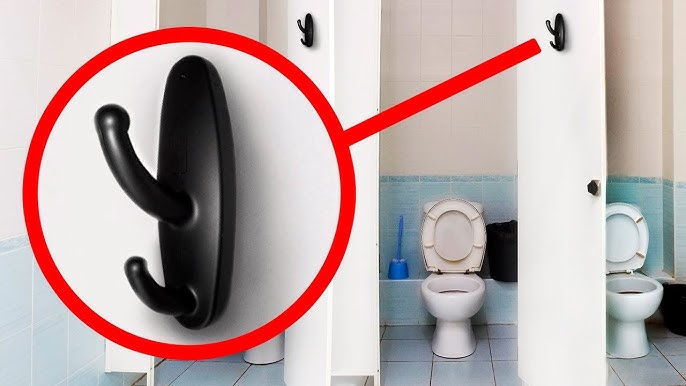1. Avoiding Arguing In Front Of Them

Please note before we go any further that “arguing” is not the same as “fighting.”
Good parents never want to have arguments in front of their children. (“Go to your room! Your father and I need to have a talk.”) For one thing, you need to present a united front. Otherwise, those damn kids are going to walk all over you. But also, nobody wants to traumatize their children by giving the impression that their marriage isn’t always bliss.
In reality, it’s much better to expose your kids to marital conflict, as long as you do it right. The world is full of conflict, as it turns out, and it’s better to acclimatize them to it early than to throw them out into society with the skewed perception that people never disagree. You’ll wind up with a kid who assumes that any argument with their buddy means the friendship is over. “Are you calling me a liar? Well guess what? Kevin is my best friend now! You’re dead to me, Trevor!”
The key, of course, is that it has to be healthy conflict. Which unfortunately means that you have to get your own shit together first. Smashing plates against the wall and then downing a whole bottle of wine while your partner storms out to the nearest bar is not the kind of fight that’s going to teach your kid how to be a functional adult.

According to studies, the best effects on children are achieved by arguments that are mild to moderate, and resolved in front of them. That last part is important — parents who cut off an argument only to “resolve” it behind closed doors with some good old-fashioned makeup sex also aren’t helping. We’re sure that works out fine for you, but your kids probably don’t know what’s happening. All they know is that their parents went to bed angry, there were some weird breathy bumping noises, and then everything was magically okay again. “All right, Trevor. I think resolving this means we have to take off our clothes and wrestle.”
On the other hand, kids who see the whole drama — especially if it is done with love, support, and compromise — get a whole bunch of positive effects, including “better social skills and self-esteem … increased emotional security … better relationships with parents, better in school and fewer psychological problems.”

And the benefits continue into adulthood. Adults who reported seeing arguments at home had lower levels of the stress hormone cortisol when dealing with their own conflicts at home than those whose parents apparently never fought, or fought behind closed doors.
It all sounds obvious when you spell it out, but right at this moment, there’s still some annoyed mother/father in the kitchen muttering, “Enough. Not in front of the kids.”
2. Helping Them With Their Homework

Ask any teacher: If there are two kids of similar intelligence levels in the same classroom, but one is struggling and one is not, there’s a good bet it relates to what’s going on at home. Right? The successful kid has a mom and dad helpfully walking them through their homework every night, while the struggling kid’s parents are screaming “Do your homework quieter, you little shit! I can barely hear myself smoking meth.”
But this may be one of those rare cases in which the meth addict has it right. Research done in 2014 showed that helping kids with their homework doesn’t have any positive impact on their ability to pass standardized tests, and the effect gets worse as they get older — to the point where helping teenagers with their homework can bring their grades down.

Sure, it’s great to have parents who make the kids do the homework, and who provide a safe, stable environment to do it in. But after that, it’s better to be hands-off. And no, they’re not just warning parents away from doing the homework for the kids; they’re saying that it’s bad news even to simply talk them through the work and help them do it themselves.
How is that possible, considering that’s exactly what their teacher does? Well, in short, parents aren’t teachers. Unless, you know, they literally are. The authors of the study believe that a significant factor is the fact that a lot of parents don’t know what the fuck they’re talking about and wind up guiding their kids to a bunch of wrong answers. As the kids get older and their homework gets harder, dad’s answers get wronger.

In short, it’s better to let the pros do the teaching, and for mom and dad to stick to the parent stuff, like keeping the kids fed. Although, on that topic …
3. Making Them Finish Their Meal
 Thomas Northcut/DigitalVision/Getty Images
Thomas Northcut/DigitalVision/Getty Images
For some reason, little kids don’t seem to like eating a whole lot — even though, statistically, they’ll be morbidly obese when they grow up. Every dinnertime is a battle, and you watch in frustration as your kids play fork soccer with their peas and push the beans around while making submarine noises. So you lay down the law: They can’t leave the table until they’ve cleaned their plate, and the longer they screw around, the colder and grosser those mashed potatoes are going to get.
But here’s the crazy thing: Your kid might be dumb as a rock, but they know when they’re hungry and when they’re not. UCSF Benioff Children’s Hospital advises that you shouldn’t force your kids to eat or punish them when they don’t. Otherwise, you’re reinforcing bad eating habits. If you’re trying to prevent obesity, then the worst thing you can do is program people when they’re young to never walk away from a pile of food until every scrap is inside them.

And beyond simply not being hungry, a significant reason kids don’t eat as much as you’d like is good old-fashioned defiance. They’re refusing to eat specifically because it pisses you off. A study conducted in 2006 took a bunch of preschoolers and observed their attitudes toward food when they were and weren’t being pressured to eat. What they found was that kids tended to eat more when nobody was bugging them about it. And those who were being pressured had more negative attitudes toward taste.
Consequently, one of the reasons your kids come to hate vegetables so much is probably that you try so hard to make them eat the damn things. So what do you do? Walk away and let them live off candy bars until they slip quietly into a diabetic coma? Actually, nutritionists recommend that you give your kids a variety of healthy options and let them eat what they want, and however much of it they want, without ranting at them about starving kids in Africa. If they don’t feel like eating it all, that’s fine, but don’t give up and make them a grilled cheese instead. The kid will insist it’s junk food or starvation, damn it, but they don’t mean it.










